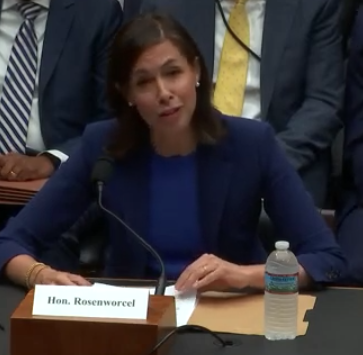
FCC Chairwoman Jessica Rosenworcel has responded to the US House Committee on Oversight and Accountability investigation regarding the Commission’s alleged “fast-track” approval of Audacy’s ownership deal involving ties to billionaire George Soros.
Committee Chair James Comer (R-KY) and Rep. Nick Langworthy (R-NY) sent a letter to FCC Chairwoman Jessica Rosenworcel in September, requesting documents and communications about the FCC’s handling of the case, questioning if the expedited decision was politically motivated.
On September 30, the FCC announced it had approved, in a 3-2 vote, Laurel Tree Opportunities Corporation’s acquisition of about 40% of Audacy’s senior debt as it sought to exit Chapter 11 bankruptcy. Laurel Tree is managed by the Soros-funded Fund for Policy Reform.
In her response, FCC Chairwoman Jessica Rosenworcel outlined the Commission’s actions to facilitate the transfer of control and assignment of licenses, allowing Audacy to emerge from bankruptcy.
Chair Rosenworcel noted that the Transfer of Control process mirrors the FCC’s handling of similar cases, including the bankruptcy proceedings of Cumulus Media, iHeartMedia, and Alpha Media. She writes, “The standard practice of the agency here and in these prior cases is designed to facilitate the prompt and orderly emergence from bankruptcy of a company that is a licensee under the Communications Act.”
Rep. Comer claims that Soros, a, “Democrat megadonor and a financier of organizations advocating for speech restrictions and censorship of conservatives online,” is looking to control what is broadcast over Audacy’s more than 220 radio stations. The Oversight Committee’s investigation asked for all documents regarding Audacy and Soros Fund Management, as well as internal FCC communications containing “George Soros.”
In her response, Chairwoman Rosenworcel included documents and communications related to Audacy’s radio station licenses and information connected to Soros Fund Management. Additional documents will be provided to the Committee on a rolling basis.
The decision has highlighted the growing partisan split at the FCC, with Commissioner Brendan Carr calling the decision “unprecedented,” criticizing Democratic Commissioners for bypassing established procedures and failing to seek public or federal agency input on changing regulations.






